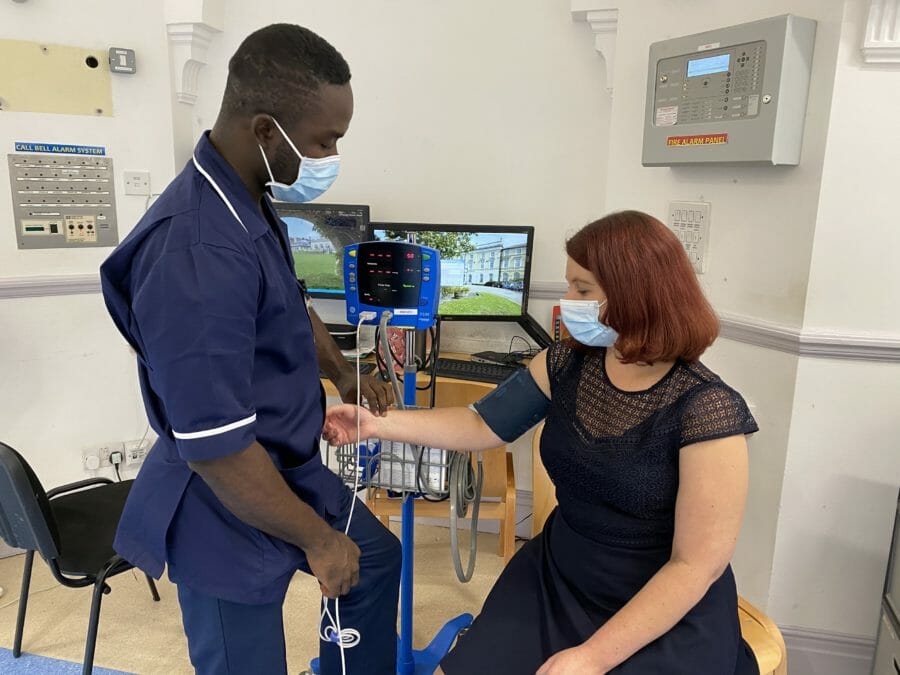A charity-run hospital based in Putney, the RHN is using an IoT solution powered by BT and Microshare to automate routine tasks for staff, while reducing energy costs.
Smart IoT sensors are able to relay information with the aid of BT’s Low Power, Long Range, Wide Area Network (LoRaWAN) technology.
Microshare, meanwhile, sourced the smart IoT sensors, connected them to its Microsoft Azure cloud and quickly integrated them into the RHN’s infrastructure.
Duties that are able to be automated by the solution include checking room occupancy, and monitoring the temperatures of fridges and water tanks.
The system can regularly monitor the four water tanks present to ensure correct legionella bacteria compliance, a process that previously required staff to gain access to the roof of the hospital every month, and took an entire day.
Additionally, automated alarms are now used to alert staff if fridge temperature becomes problematic.
Developing a scaling strategy for IoT
Hospital leaders have said that room monitoring using the solution has allowed for cost savings due to data proving that another meeting place isn’t needed, meaning there wasn’t a need to relocate to an older building where space is paramount.
“The new IoT system is part of a major drive towards digital transformation at the hospital,” said Toby Roberts, CIO of the RHN. “Five years ago, the hospital was mostly a paper based organisation with very little use of computers and networks.
“However, over the past few years we’ve introduced more digital solutions to make tasks simpler and easier. For example, whereas nurses used to take observations and record patient details on a clipboard, this is now done on an iPad and automatically fed into our secure network.
“Thanks to BT and Microshare, we are now able to automate many tasks that would have previously taken considerable time or effort to carry out. If a nurse wants to find out where a wheelchair or ECG machine is, they can simply log onto the computer and find out where in the hospital it is located. Something that may have taken an hour or more in the past is now done in seconds.
“This technology has been extremely useful during the current pandemic as it has allowed our staff to perform more efficiently under heightened pressures. Instead of spending time filling out paper forms, they’re able to do it at the click of a button.”
Chris Sims, managing director, commercial and marketing for BT’s Enterprise business, commented: “At a time when our healthcare sector has faced unprecedented challenges due to Covid-19, it’s amazing to see how this is hospital has embraced the latest technology to make a difference for staff and patients.
“It shows how technology can be a huge enabler and a force for good. We’re helping communities and organisations such as RHN to make the best of the opportunities which these novel technologies can offer.
“The network we have provided at the hospital allows blanket connectivity for hundreds of devices across the building, from the basement to the upper floors. In fact, its range is so impressive, the signal reaches as far as Paddington eight miles away.
“I congratulate the hospital’s team for how they are leading the way in this sector and demonstrating how it’s possible to do things smarter and better while still making cost savings in areas like energy use.”
How healthcare IT can be kept smart
Charles Paumelle, co-founder of Microshare, added: “One of the keys to success for us is knowing that the project had positive and measurable impact quickly on patient care and on some of the stresses staff experience in carrying out rote tasks better suited to real-time monitoring.
“A solution like this one can lead to huge productivity and safety gains, and all without ever interacting with the sensitive patient data that may exist in a hospital’s own network. Success in IoT is all about partnerships and this was demonstrated here with RHN, Microshare and BT all working together to make this happen.”










